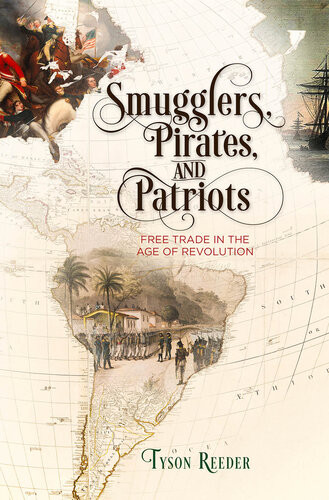

Most ebook files are in PDF format, so you can easily read them using various software such as Foxit Reader or directly on the Google Chrome browser.
Some ebook files are released by publishers in other formats such as .awz, .mobi, .epub, .fb2, etc. You may need to install specific software to read these formats on mobile/PC, such as Calibre.
Please read the tutorial at this link: https://ebookbell.com/faq
We offer FREE conversion to the popular formats you request; however, this may take some time. Therefore, right after payment, please email us, and we will try to provide the service as quickly as possible.
For some exceptional file formats or broken links (if any), please refrain from opening any disputes. Instead, email us first, and we will try to assist within a maximum of 6 hours.
EbookBell Team

4.3
18 reviewsAfter emerging victorious from their revolution against the British Empire, many North Americans associated commercial freedom with independence and republicanism. Optimistic about the liberation movements sweeping Latin America, they were particularly eager to disrupt the Portuguese Empire. Anticipating the establishment of a Brazilian republic that they assumed would give them commercial preference, they aimed to aid Brazilian independence through contraband, plunder, and revolution. In contrast to the British Empire's reaction to the American Revolution, Lisbon officials liberalized imperial trade when revolutionary fervor threatened the Portuguese Empire in the 1780s and 1790s. In 1808, to save the empire from Napoleon's army, the Portuguese court relocated to Rio de Janeiro and opened Brazilian ports to foreign commerce. By 1822, the year Brazil declared independence, it had become the undisputed center of U.S. trade with the Portuguese Empire. However, by that point, Brazilians tended to associate freer trade with the consolidation of monarchical power and imperial strength, and, by the end of the 1820s, it was clear that Brazilians would retain a monarchy despite their independence.
Smugglers, Pirates, and Patriots delineates the differences between the British and Portuguese empires as they struggled with revolutionary tumult. It reveals how those differences led to turbulent transnational exchanges between the United States and Brazil as merchants, smugglers, rogue officials, slave traders, and pirates sought to trade outside legal confines. Tyson Reeder argues that although U.S. traders had forged their commerce with Brazil convinced that they could secure republican trade partners there, they were instead forced to reconcile their vision of the Americas as a haven for republics with the reality of a monarchy residing in the hemisphere. He shows that as twilight fell on the Age of Revolution, Brazil and the United States became fellow slave powers rather than fellow republics.